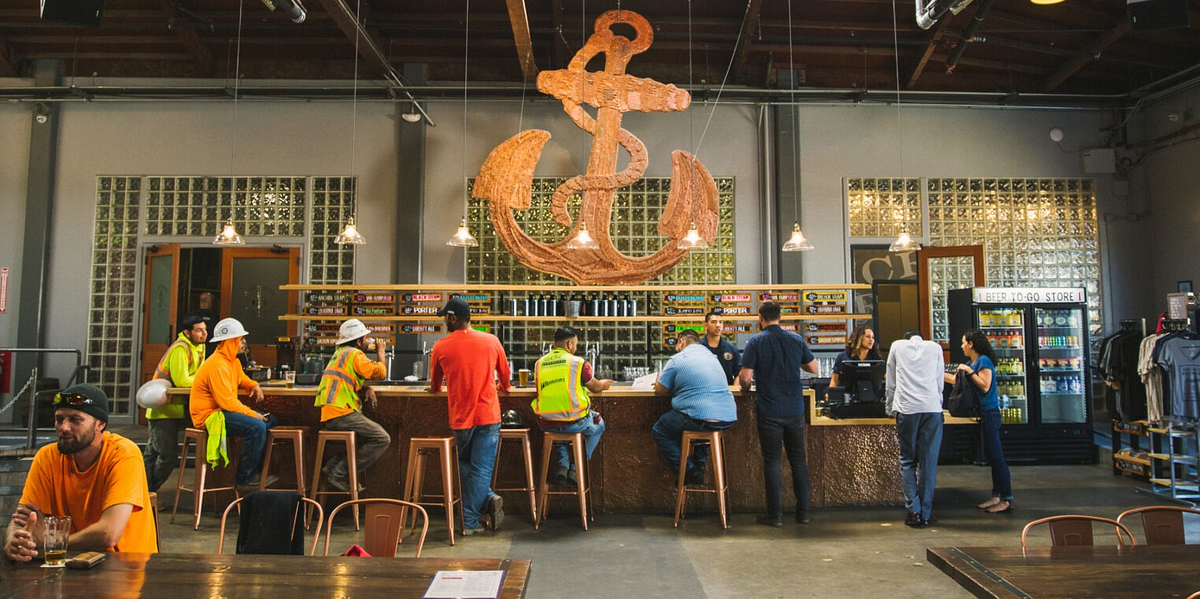This article is part of SF Throwbacks, a feature series that tells historic stories of San Francisco to teach us all more about our city’s past. It’s also an excerpt from Alec Scott’s book, Oldest San Francisco.
Anchor closed not long ago and then was bought by the founder and CEO of Chobani, Hamdi Ulukaya. This story covers its prior history.
Anchor came out of an earlier brewery started by Gottlieb Brekle, a German immigrant who came here in the Gold Rush. It was in 1871 that Brekle started running Anchor’s predecessor brewery out of a saloon in Russian Hill, and the brewery took the name Anchor in 1896 — the official year of founding.
It was one of many breweries in those pre-refrigeration days to air-cool the mash, the so-called wort, that came out of the brewing kettles.
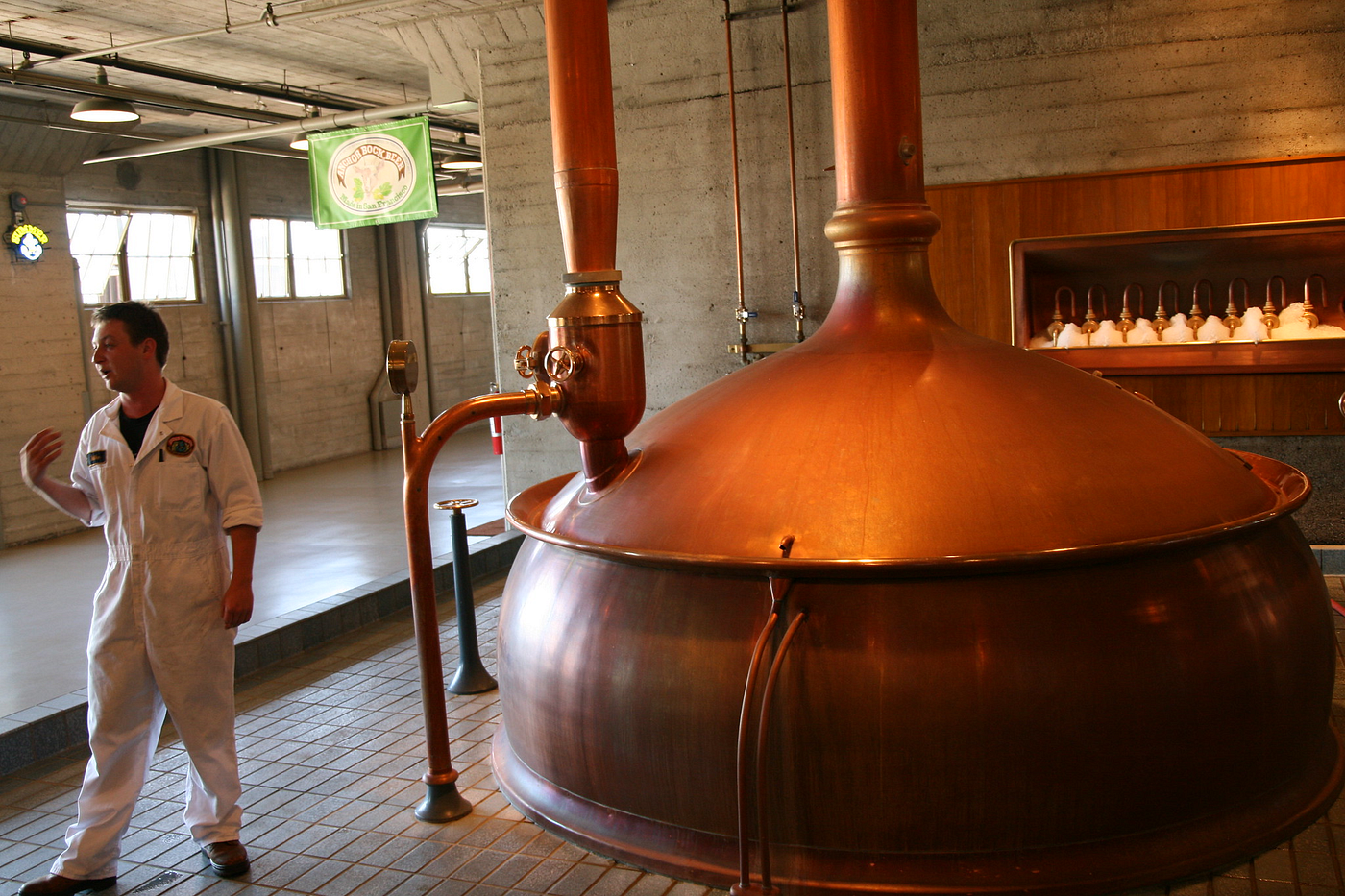
The practice was to leave this mixture to cool and ferment further in rooftop baths, and clouds of steam would billow off these into the cold early morning air. This is, anyway, one story of how Anchor’s most famous brew came to be called Steam Beer. But some wags say a San Franciscan named Pete Steam pioneered it; others that it was an adjective given out willy-nilly in the steam era to speak to something’s coolness and power. Whatever the case, Anchor was the only San Francisco brewery after the advent of mass refrigeration to continue with this method of brewing.
The history section of Anchor’s website uses local author Daniel Handler’s title: An Unfortunate Series of Events — and it’s an apt way to think of the brewery’s checkered past. Towards the end of the 19th century, Brekle passed the brewery along to two fellow German-Americans, Ernst F. Baruth and his son-in-law Otto Schinkel Jr. So far, so good.
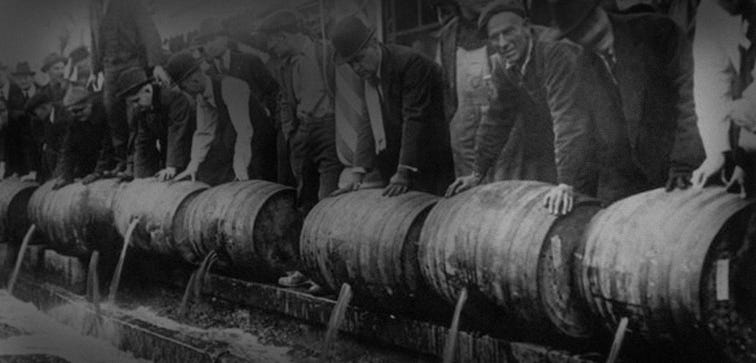
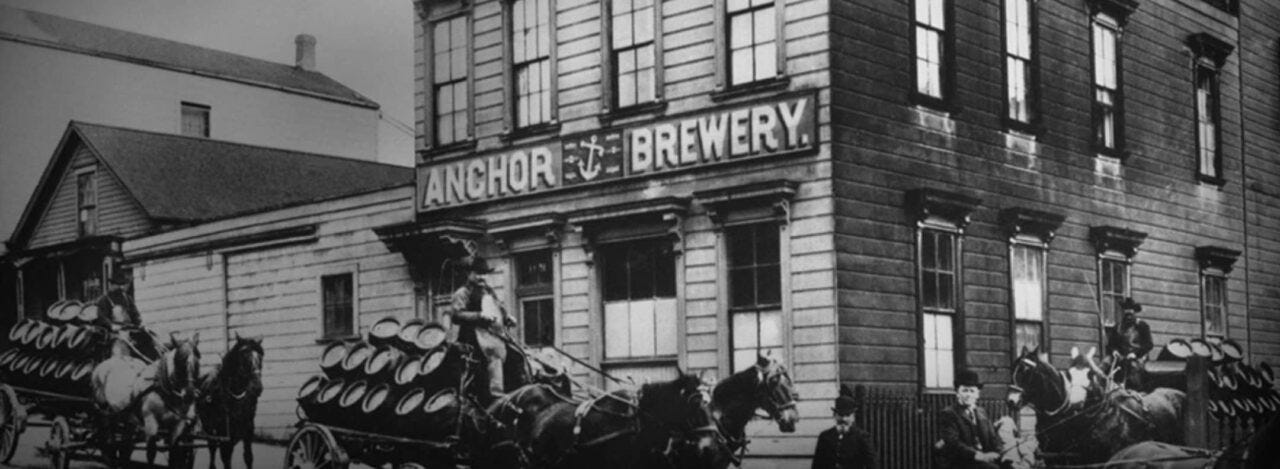
The unfortunate series began with Baruth’s sudden death in 1906 and continued with that year’s big quake. The post-quake fire consumed the factory and then, just a year later, Schinkel was knocked down by a streetcar and died. Under new management, it limped into the 1920s, only to be shut down (at least officially) by Prohibition. Just when Prohibition ended and Anchor could begin brewing openly again, another fire destroyed it.
Again, it picked itself up, finding new premises not far from its current digs in Potrero Hill. At the mid-century, the American craze for the watery lagers produced by the mega-breweries hit San Francisco. Still, even if they couldn’t beat ’em, they decided not to join ’em. Says its current Assistant Brewmaster, Tom Riley, “They were crazy people, staying loyal to this idea of brewing from the Gold-Rush days.”
But by the mid-1960s, the brewery was flirting with bankruptcy and a young Stanford graduate named Frederick Louis Maytag III — one of the appliance-making Maytags — supposedly learned of its difficulties one evening while drinking Anchor Steam and bought it for a few thousand dollars. In 1977, he moved the firm into its current home, an old coffee factory in Potrero Hill. But Anchor, under Maytag, still doesn’t aim to produce for the mass market: “The idea isn’t to grow big,” he would say, “it’s to make good beer consistently.” And so, he is often credited with starting the ongoing microbrewery movement.
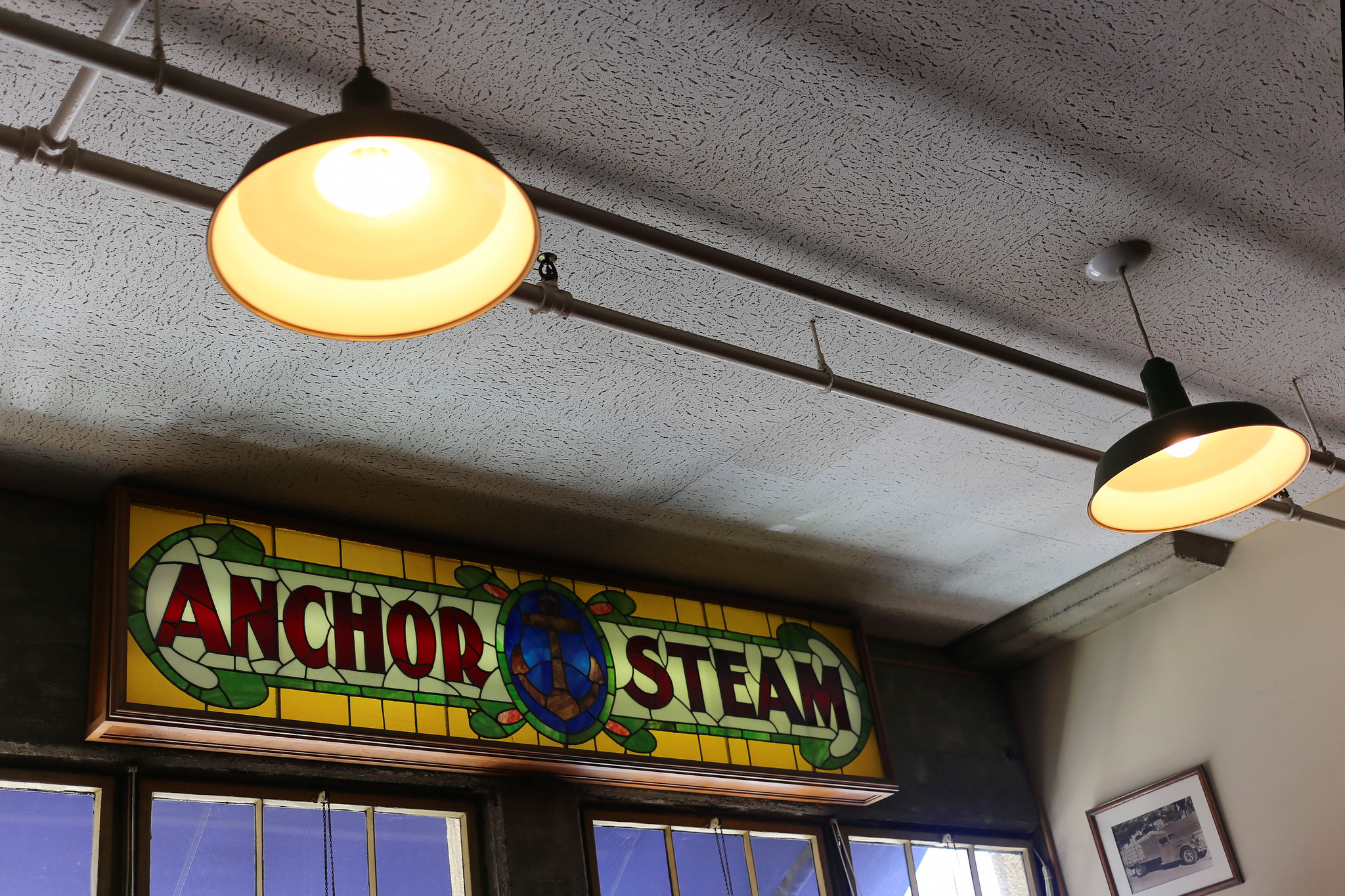
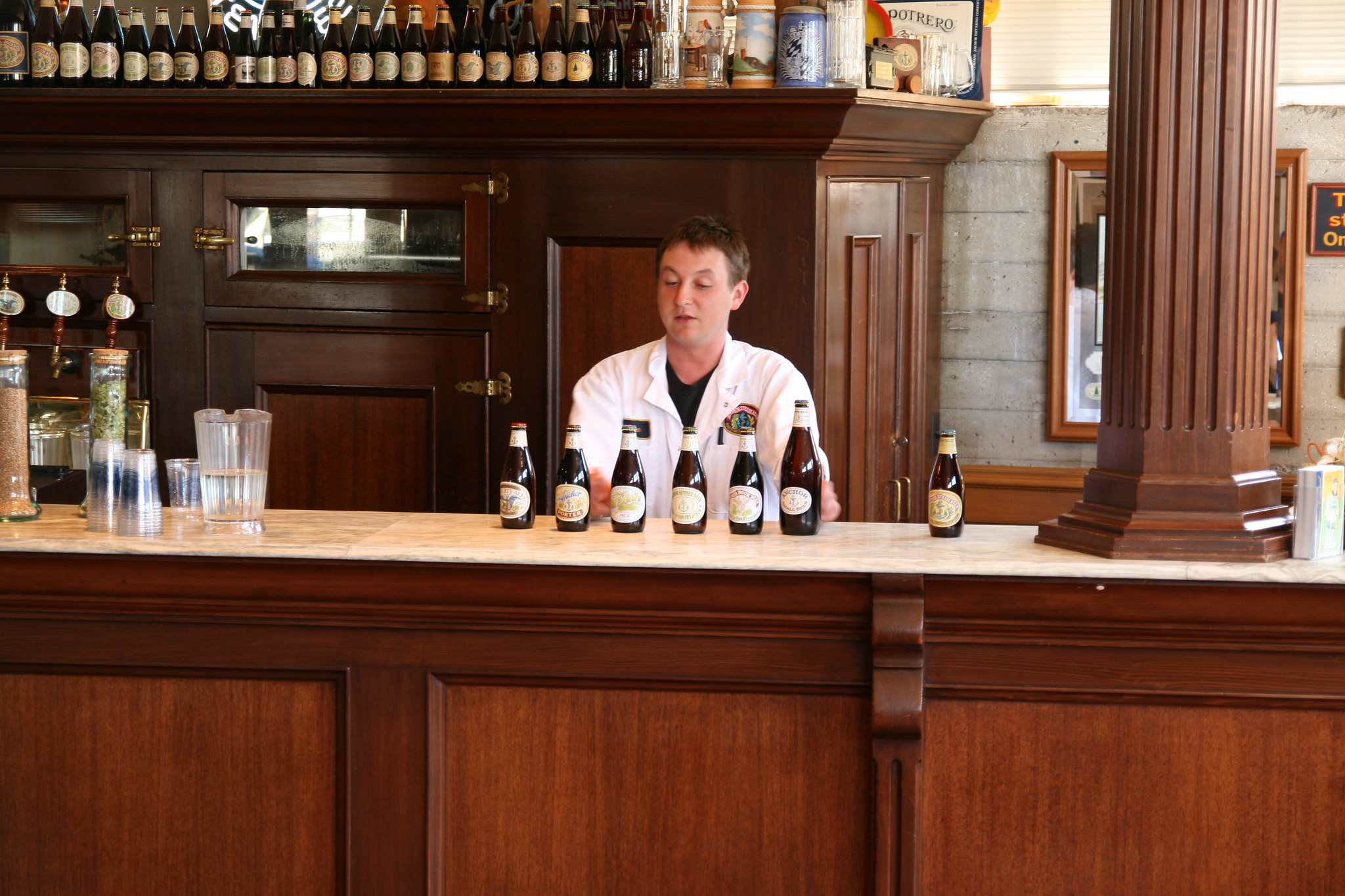
In 2010, Maytag finally sold out to the California liquor company that also owned Skyy Vodka, and it, in turn, sold Anchor to Japan’s Sapporo Holdings Ltd in 2017.
From steam beer, Anchor’s offerings have expanded to include, at various times: a brown brew named for founder Brekle; the first wheat beer produced in the US since Prohibition; various seasonal brews, including each year, a much coveted Christmas beer; beers accented with fruits like cherry, mango and blood orange; an India Pale Ale (the big growth sector in the craft beer market in the last decade); even an experimental beer following a recipe out of ancient Sumer, named for that Mesopotamian culture’s Goddess of Beer.
Maybe it was this offering to the ancient goddess that has helped Anchor see out this long series of unfortunate events. Maybe not. But see it out it did.
Anchor closed not long ago and then was bought by the founder and CEO of Chobani, Hamdi Ulukaya. This story covers its prior history. Alec Scott is an award-winning journalist, with features in The New York Times, Guardian, Smithsonian Magazine, Los Angeles Times and Sunset.
Learn more about Oldest San Francisco, his latest book with stories of the institutions that helped make San Francisco the place it is today.
The Bold Italic is a non-profit media organization, and we publish first-person perspectives about San Francisco and the Bay Area. Donate to us today.



